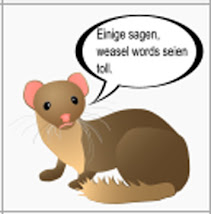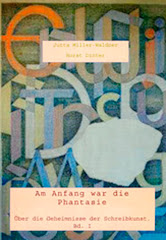Wer kennt nicht Mark Twains Ausspruch
»Der Unterschied zwischen dem beinahe richtigen Wort und dem richtigen Wort ist wirklich eine große Sache – es ist der Unterschied zwischen dem Glühwürmchen und dem Blitz«**
(besser bekannt unter »Der Unterschied zwischen dem beinahe richtigen Wort und dem richtigen Wort ist so groß wie der zwischen dem Glühwürmchen und dem Blitz«)
»The difference between the almost right word and the right word is really a large matter—’tis the difference between the lightning bug and the lightning.«
(In George Bainton: The Art of Authorship: Literary Reminiscences, Methods of Work, and Advice to Young Beginners, Personally Contributed by Leading Authors of the Day. Appleton, 1891, S. 87 f.; siehe auch http://www.floridatechnet.org/inservice/fcat/readlg.pdf)
Als Quelle wird »Letter to George Bainton, 15 October 1888« genannt, die Angabe habe ich in dem Buch aber nicht gefunden. Tatsächlich zitiert Bainton nur aus dem Brief:
Well, also he will notice in the course of time, as his reading goes on, that the difference between the almost right word and the right word is really a large matter—'tis the difference between the lightning-bug and the lightning. After that, of course, that exceedingly important brick, the exact word—however, this is running into an essay, and I beg pardon. So I seemed to have arrived at this: doubtless I have methods, but they begot themselves, in which case I am only their proprietor, not their father.Twain gefiel der Glühwürmchen-/Blitz-Vergleich so gut, dass er ihn in verschiedenen Zusammenhängen gebrauchte, so auch in diesen Zitaten:
»Ich verstehe. Nun begreife ich es. Es ist der Unterschied zwischen Effizienz und halber Effizienz. In diesem Beispiel ist der Unterschied zwischen der Post und dem Telegrafen, wenn ich das so sagen darf, wie der zwischen dem Glühwürmchen und dem Blitz.« (Übersetzung jmw.)Und in Some Thoughts on the Science of Onanism schreibt Mark Twain:
»I see. I understand, now. It’s the difference between efficiency and half-efficiency. In the present instance, if you will allow me to say it, it’s the difference between the mail and the telegraph, between the lightning-bug and the lightning.«
(Which Was It? In John S. Tuckey (Ed.), Mark Twain’s Which Was the Dream? and Other Symbolic Writings of the Later Years. University of Califonia Press 1966, S. 346)
»Es gibt hunderte Künstler, die meine Bücher illustrieren könnten, aber es gab nur einen, der dieses eine Buch illustrieren konnte. Ja, es war eine glückliche Stunde, als ich Glühwürmchen fangen wollte und einen Meteor erhaschte.« (Übersetzung jmw.)
»There are hundreds of artists who could illustrate any other book of mine, but there was only one who could illustrate this one. Yes, it was a fortunate hour that I went netting for lightning-bugs, and caught a meteor.«
(Über die Illustrationen von Daniel Carter (Dan) Beard für A Connecticut Yankee in King Arthur’s Court. In Albert Bigelow Paine: Mark Twain: A Biography, Chapter CLXXI »A Connecticut Yankee in King Arthur’s Court« http://ebooks.adelaide.edu.au/t/twain/mark/paine/chapter171.html; siehe auch http://www.twainquotes.com/UniformEds/UniformEdsCh29-j.html)
»Brigham Young, ein Experte von unbestreitbarer Autorität, sagte: ›Verglichen mit der anderen Chose, ist es wie der Unterschied zwischen dem Glühwürmchen und dem Blitz.‹«Aber alles was Recht ist: Diesen schönen Vergleich hat Mark Twain nicht selbst erdacht, sondern er verdankt ihn Josh Billings, was er in seiner Rede am 30. 11. 1901 anlässlich des 145. Dinners der St. Andrew’s Society of the State of New York mit den Worten betonte:
(Zitiert nach www.swr.de/-/id=1837708/property=download/z95oce/index.rtf)
»Brigham Young, an expert of incontestable authority, said, ›As compared with the other thing, it is the difference between the lightning bug and the lightning.‹« (http://www.textfiles.com/etext/AUTHORS/TWAIN/onanism.txt)
– Ob der zweite Präsident und Prophet der Kirche Jesu Christi der Heiligen der Letzten Tage (Mormonen) das wirklich gesagt hat oder ob ihm Mark Twain das nur in den Mund gelegt hat, konnte ich leider nicht feststellen. –
»Josh Billings definierte den Unterschied zwischen Humor und Witz als den zwischen dem Glühwürmchen und dem Blitz.«Tatsächlich schrieb Billings jedoch:
»Josh Billings defined the difference between humor and wit as that between the lightning bug and the lightning. There is a conscious and unconscious humor. That whiskey offer of the Lord Rector’s was one of unconscious humor. A peculiarity of that sort is a man is apt to forget it.« [Laughter.]
(In The New York Times, December 1, 1901, http://www.twainquotes.com/19011201.html)
»Don’t mistake vivacity for wit, thare iz about az much difference az thare iz between lightning and a lightning bug.«Womit ich einmal mehr festgestellt habe, wie spannend es sein kann,
(In Josh Billings’ Old Farmer’s Allminax, January 1871, http://www.gutenberg.org/files/40191/40191-0.txt)
*Dass der Unterschied sei wie der zwischen Blitz und Streichholz, ist natürlich Unsinn.
**Zu dem Zitat »Der Unterschied zwischen Aufgewecktheit und Scharfsinn ist derselbe wie zwischen dem Glühwürmchen und dem Blitz« – von wem?« (Some folks mistake vivacity for wit; whereas the difference between vivacity and wit is the same as the difference between the lightning-bug and the lightning) siehe http://juttas-zitateblog.blogspot.de/2012/09/der-unterschied-zwischen-aufgewecktheit.html)







Keine Kommentare:
Kommentar veröffentlichen